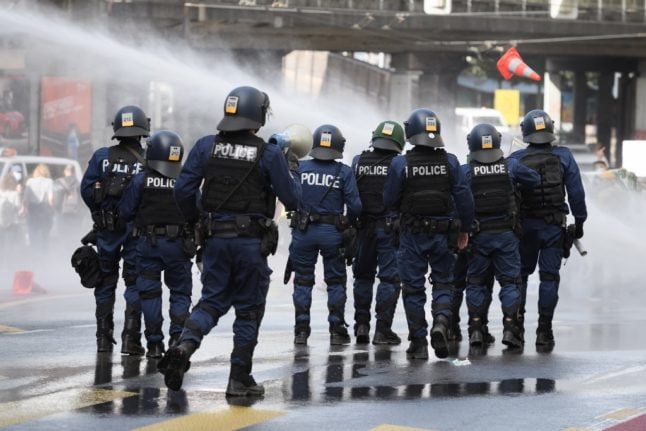A 28-year-old assailant was arrested last week after allegedly trying to strangle one person with her bare hands, and stabbing another in the neck in the southtern city of Lugano, in the canton of Ticino.
“The perpetrator is known to the federal police,” the police said on Twitter. “She was part of a police investigation in 2017 in connection with jihadism.”
In another incident in September, a man stabbed and killed a random person in the back while the victim was eating in a restaurant in the town of Morges, in Vaud.
Officials said the suspect had been known to the Federal Intelligence Service (FIS) “because of the consumption and dissemination of jihadist propaganda”.
Does this mean Switzerland is at risk of terrorist attacks?
In a report published on November 24th, FIS noted that “in Switzerland, the terrorist threat remains at a heightened level”.
However, while Switzerland could be a target of attacks, “it is not a top priority for jihadists”, FIS said.
Where does the biggest threat come from?
FIS noted that as Switzerland is part of the Western world, judged by jihadists to be Islamophobic, so they view the country as a “legitimate target”.
According to FIS, “the threat stems primarily from the ‘Islamic Stateʼ and its supporters and sympathisers. The threat posed by al-Qaeda persists. Ethno-nationalist terrorism also remains a threat”.
“Media reports critical of Muslims, attacks on Muslim targets or discrimination against Muslims may also have a mobilising effect among Islamists. Depending on the unfolding of events, jihadist networks might suddenly adjust their focus to target Switzerland”, the intelligence agency reports.
But FIS also found that, unlike many other countries where attacks were perpetrated by organised groups, in Switzerland assaults “came from lone people with extremist views but no firm attachment to established violent extremist groups”.
“Their radicalisation and violent tendencies are rooted more in personal crises or psychological problems than in ideological conviction”, FIS added.
The potential for violence also exists among left-wing and right-wing extremists.
Out of 236 such incidents recorded in 2019 in Switzerland, 207 were connected to the left, while 29 were carried out by the right-wing groups.
“Where violence is used, it is usually instigated by the left-wing extremists”, FIS noted.
“Right-wing extremists have shown restraint in the use of violence. But there are indications that some of them train in combat sports and have weapons”.
Are there any terrorist cells in Switzerland?
Two Swiss citizens were arrested in connection with the recent gun attack in Vienna on November 2nd . They were held in the northeastern town of Winterthur, in canton Zürich.
READ MORE: Swiss suspects in Vienna attack 'already faced terror charges'
The town’s An'Nur mosque had been long suspected of having played a role in the radicalisation of several of its young worshipers. A dozen of them left for Syria to join Islamic State jihadist groups. In 2017, the mosque was closed and the Islamic association that headed it was dissolved.
One of the mosque’s imams was arrested for urging the murder of non-practicing Muslims. He was eventually given an 18-month suspended prison sentence, before being deported to Somalia.
More recently, another person connected with the mosque was sentenced to 50 months in prison for supporting and recruiting for Islamic State.
What about the so-called ‘jihadist travellers’ — people from Switzerland who are indoctrinated abroad?
More than a dozen Swiss sympathisers of the jihadist cause were known to go to Middle-Eastern regions to be radicalized, but they are no longer considered a present or emerging threat.
“The sixteen individuals who had previously returned to Switzerland from Syria and Iraq are, with a few exceptions, keeping a low profile”, FIS noted.



 Please whitelist us to continue reading.
Please whitelist us to continue reading.
Member comments